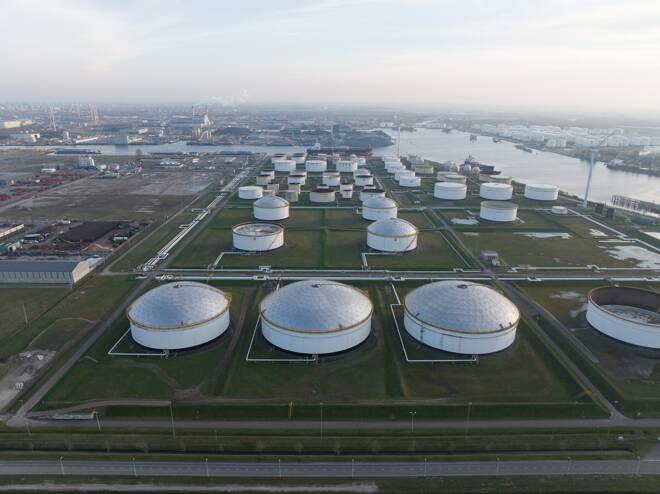Advertisement
Advertisement
Oil Price Fundamental Daily Forecast – Weighed Down by Rate Hike, Recession Fears
By:
Crude oil traders are worried that an aggressive push by the Fed to dampen inflation will tip the economy into recession, thereby threatening demand.
U.S. West Texas Intermediate and international-benchmark Brent crude oil futures are trading sharply lower for a second session on Thursday after bearish remarks from Federal Reserve Chairman Jerome Powell on Wednesday and an uneventful OPEC+ production decision earlier today.
At 15:26 GMT, August WTI crude oil is at $106.78, down $3.00 or -2.73%. September Brent crude oil is at $110.05, down $2.40 or -2.13%. The United States Oil Fund is trading $81.06, down $1.89 or -2.28%.
Fed Powell’s Tone Sends Dollar Higher, Crude Oil Lower
The U.S. Dollar rose sharply and dollar-denominated crude oil fell late Wednesday after Federal Reserve Chairman Jerome Powell said there is a risk the U.S. central bank’s interest rate hikes will slow the economy too much, but the bigger risk is persistent inflation.
Worrying crude oil traders is the aggressive push by the Fed to dampen inflation, which could push the economy into recession, thereby threatening demand.
“The clock is kind of running on how long will you remain in a low-inflation regime. …The risk is that because of the multiplicity of shocks you start to transition into a higher inflation regime and our job is to literally prevent that from happening and we will prevent that from happening,” Powell said at a European Central Bank conference.
OPEC+ Sticks to Oil Production Policy
OPEC+ agreed on Thursday to stick with its planned oil output hikes in August but avoided discussing policy from September onwards even as prices have risen on tight global supplies and worries that the group has little ability to pump more crude.
At its last gathering on June 2, OPEC+ decided to increase output each month by 648,000 barrels per day (bpd) in July and August, up from a previous plan to add 432,000 bpd per month.
Short-Term Outlook
The outlook is still bullish for crude oil, despite Thursday’s setback, because of tight supplies and concerns that OPEC states had little extra capacity to raise output swiftly. Analysts said those fears outweighed worries about an economic downturn.
But the clock is ticking, and crude oil traders will be watching to see how the front-loaded rate hikes from the major central banks affect the global economy
The current price action suggests buyers are coming in on the breaks as their focus remains on tight supplies, but demand could quickly become a major issue if the global economy enters a recession. Demand could plunge along with prices.
For a look at all of today’s economic events, check out our economic calendar.
About the Author
James Hyerczykauthor
James Hyerczyk is a U.S. based seasoned technical analyst and educator with over 40 years of experience in market analysis and trading, specializing in chart patterns and price movement. He is the author of two books on technical analysis and has a background in both futures and stock markets.
Advertisement
